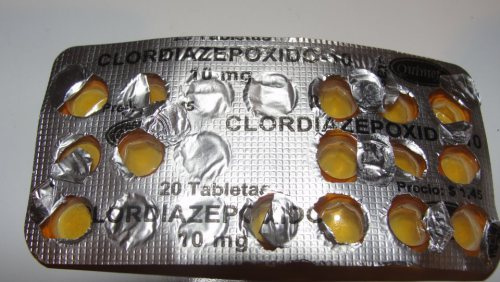
The piece of paper was left under the door, but he only found it the other day. The list was written in rough handwriting, with spelling that exchanged “R’s” for “L’s” and some “B’s” for “V’s.” But he understood everything. Diazepam continues at 10 pesos for a dozen pills and should be delivered within a day, at least for the next month. Paracetamol is also available, so next to the name of that medicine he put the number two. This time he didn’t need alcohol, but Nystatin cream is a yes so he marked it. His son, restless by nature, could also use some meprobamate so he also wrote down the number for a several week supply. This dealer was reliable, he’d never been cheated, all the medications were good quality and some were even imported. More than once he’d bought the sealed jars that said, “Sale prohibited, free distribution only.”
The business of medications and other medical supplies is growing every day. A stethoscope on the black market costs the salary of two working days; a Salbutamol spray for asthmatics costs the wages of an entire work day. Given the undersupplied State pharmacies, patients and their families can’t sit around with their arms crossed. A roll of tape costs around 10 pesos in national currency, the same price as a glass thermometer. You can break the law or continue diagnosing fever with a hand to the forehead. The danger, however, comes not only from violating the law. In reality, many customers self-medicate or consume pills that no doctor has prescribed for them. Given the clandestine seller, it’s not necessary to show a prescription and he never questions what the client is going to do with the pills or syrups.
Despite the successive sweeps against drug smuggling, the phenomenon seems to increase rather than decrease. In the Havana area of Puentes Grandes an old trash bin turned into a pharmaceutical warehouse is the emblem of the government strategies and failures to prevent illicit sales. The police are incapable of eradicating the situation, because the diversion of medications is carried out from grocers, pharmacy technicians, nurses, doctors, even hospital directors. The greatest demands are centered around analgesics, anti-inflammatories, antidepressants, syringes, cotton and painkiller creams. The illegal drug market also goes along with adulteration and counterfeiting.
Some small white pills, costing three times their official value, can end the problem, or be the start of others, more serious.
19 June 2013
